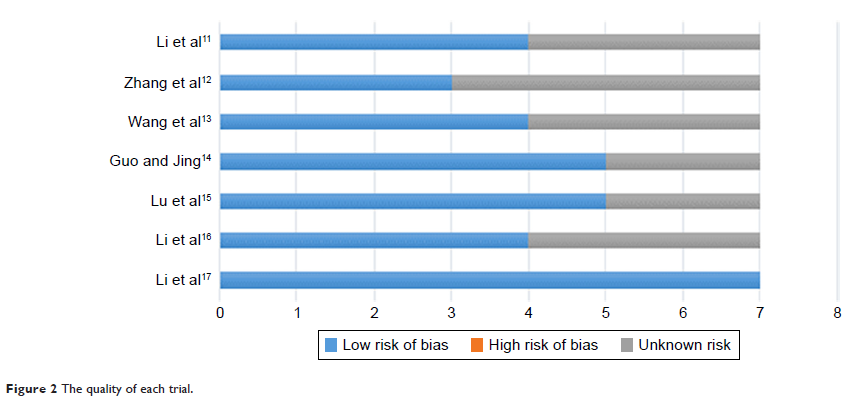9 0 6 7 6
论文已发表
注册即可获取德孚的最新动态
IF 收录期刊
- 2.6 Breast Cancer (Dove Med Press)
- 3.9 Clin Epidemiol
- 3.3 Cancer Manag Res
- 3.9 Infect Drug Resist
- 3.6 Clin Interv Aging
- 4.8 Drug Des Dev Ther
- 2.8 Int J Chronic Obstr
- 8.0 Int J Nanomed
- 2.3 Int J Women's Health
- 3.2 Neuropsych Dis Treat
- 4.0 OncoTargets Ther
- 2.2 Patient Prefer Adher
- 2.8 Ther Clin Risk Manag
- 2.7 J Pain Res
- 3.3 Diabet Metab Synd Ob
- 4.3 Psychol Res Behav Ma
- 3.4 Nat Sci Sleep
- 1.9 Pharmgenomics Pers Med
- 3.5 Risk Manag Healthc Policy
- 4.5 J Inflamm Res
- 2.3 Int J Gen Med
- 4.1 J Hepatocell Carcinoma
- 3.2 J Asthma Allergy
- 2.3 Clin Cosmet Investig Dermatol
- 3.3 J Multidiscip Healthc

阿帕替尼治疗胃癌、肝细胞癌和非小细胞肺癌的疗效和安全性: 一项综合分析
Authors Xue J, Astère M, Zhong M, Lin H, Shen J, Zhu Y
Received 1 May 2018
Accepted for publication 24 July 2018
Published 21 September 2018 Volume 2018:11 Pages 6119—6128
DOI https://doi.org/10.2147/OTT.S172717
Checked for plagiarism Yes
Review by Single-blind
Peer reviewers approved by Dr Amy Norman
Peer reviewer comments 4
Editor who approved publication: Dr Yao Dai
Abstract: Apatinib (Aitan®, brand name in China) is a new anti-antiangiogenic agent that has
recently been approved for the treatment of advanced gastric cancer (GC) in
China. Nevertheless, its therapeutic efficacy against other types of advanced
solid tumors remains unclear. This meta-analysis examines the short-term
efficacy and safety of apatinib or combination therapy for GC, hepatocellular
carcinoma (HCC) and non-small-cell lung cancer (NSCLC); and provides a
discussion of its anti-angiogenesis therapy applications. Seven clinical
studies met the inclusion criteria. The treatment of cancers using apatinib was
more successful compared to therapy without apatinib. Both objective response
rates (ORRs) and disease control rates (DCRs) were significantly improved in
the apatinib group compared to those in the control group (RR=2.18, 95% CI
1.30–3.65; RR=2.09, 95% CI 1.21–3.60). The DCR of 850 mg qd and 750 mg qd were
higher than those in the control group (P <0.05). Based
on the short-term acute adverse reactions of apatinib, significant differences
between groups were found for hypertension, urine protein, hand foot syndrome,
and gastrointestinal reactions (diarrhea), while no significant differences
were found for myelosuppression, nausea and vomiting. Moreover, the results
showed that apatinib prolonged patient survival (HR=0.38, 95% CI: 0.28–0.52),
and the effect was more pronounced in patients treated with 750 mg qd or 850 mg
qd of apatinib than in those treated with a dose of ≤500 mg qd. Additionally,
compared to its second-line application, the third-line application was shown
to further reduce the risk ratio in patients. Furthermore, overall survival was
longer in patients treated with apatinib. Apatinib was shown to have certain
short-term effects and survival benefits on GC, HCC, and NSCLC with
controllable adverse effects.
Keywords: apatinib, vascular endothelial growth factor, malignant tumor,
angiogenesis, meta-analysis
